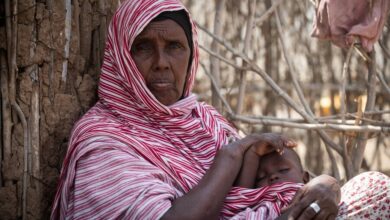World
Egypt Votes On Constitutional Amendments Aimed At Extending Sisi’s Rule

The people of Egypt continued to cast their ballots for the second day on Saturday on constitutional amendments that would allow President Abdel-Fattah el-Sisi to stay in power until 2030 and broaden the power of Egypt’s powerful military, reported Reuters.
The three-day referendum was announced last week, a day after Egypt’s parliament overwhelmingly approved the amendments, with only 22 no votes and one abstention from 554 lawmakers in attendance. The amendments, if approved would extend Sisi’s current term to six years from four and allow him to run again for a third six-year term in 2024. Sisi was first elected as Egypt’s president in 2014 and got re-elected in 2018.
The amendments would also give the president the power to appoint head judges and the public prosecutor from among the candidates, and give Egypt’s powerful military the role of protecting the constitution and democracy.
The National Elections Authority (NEA) spokesman on Sunday confirmed that Egypt will not be extending its three days of voting in the referendum on the country’s constitutional amendments.
In a press conference, NEA spokesman Judge Mahmoud El-Sharif refuted all the reports that claimed the authority had issued statements saying that there would be an extension on the vote, whether domestically or abroad.
Around 61 million of Egypt’s nearly 100 million population are eligible to vote. The result is expected to be out within five days of the final day of voting, most probably on April 27.
While Sisi’s supporters are of the view that constitutional amendments would give their leader more time to pursue development projects in the country, the critics say the changes are completely anti-democratic and will do nothing but tighten his grip on power.
Last week, Amnesty International released a statement that said the proposed constitutional amendments would curb the people’s freedom of expression, association and assembly, their rights, and exacerbate the human rights crisis in the country.






